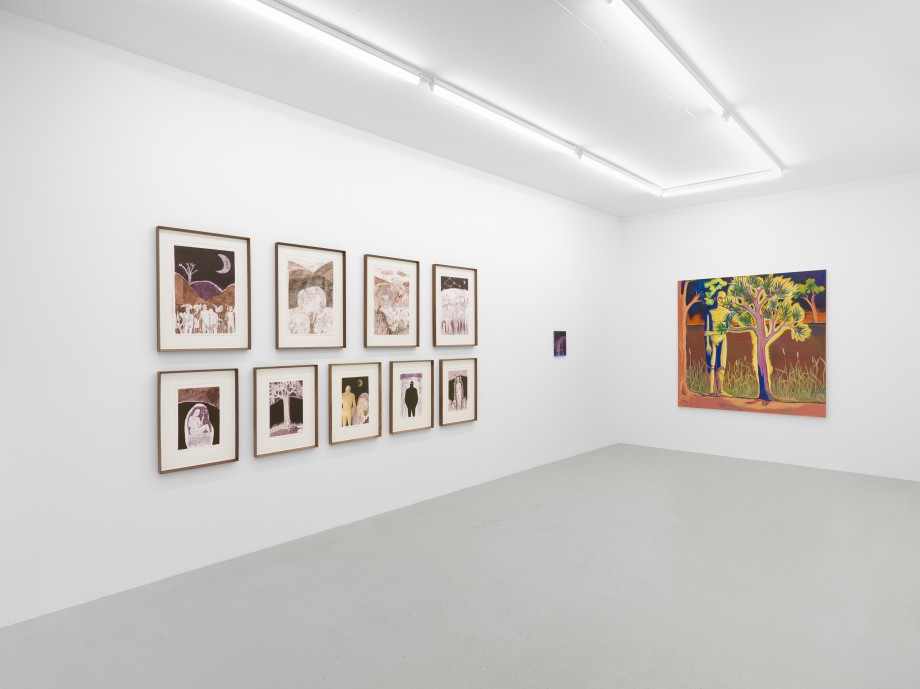Sim Smith is proud to present Arcadia, Kemi Onabulé’s first in-person solo exhibition. The exhibition is a voyage through landscape, exploring our relationship to the natural world and our current ecological predicament. Onabulé works across a wide range of media in this exhibition drawing on her rich Greek, English and Nigerian heritage to present us with a diverse and history-spanning show with the premise of Arcadia at its heart.
Living in harmony with nature, Arcadia is a term derived from a Greek province of the same name, a verdant, mountainous land, sparsely populated, beautiful and bucolic. The word developed into a poetic term associated with an idyllic vision, an unspoiled, bountiful wilderness where human beings lived side by side in harmony. It is this untouched quality, this idealised version of nature that Onabulé is so interested in. It is often an unattainable vision, the opposite of what we are experiencing now. We do not live amongst untouched beauty and are now, as Onabulé puts it “…living on the other side”. Her works straddles longing and irony, exploring how we have lost our way with regards to our relationship to the natural world and asking questions about how we might find our way back.
“I am interested in the cheapening of that beauty, that’s what we are experiencing, I wanted to describe it.”
In one of the larger paintings in the show Burning Boy, Burning Tree, the tree is on fire, maybe it’s a forest fire. The boy is set in a magnificent landscape, but something is severely wrong and he is helpless. Onabulé is interested in the collective ability to create a problem and the effect it then has on the individual who is unable to change it alone. The larger paintings in the show depict lone figures, the everyman, standing or lying, in verdant forests or scorched plains amid fronds of foliage and long shadows. There are mountains and rivers, skies and wildfires. They are romantic and dangerous, mysterious yet familiar.
The small portraits in the show expand on the idea of the everyman, of universal, collective experience. Onabulé draws on the depiction of people from ancient cultures who saw humans and souls as more symbolic rather than individualistic. Her Untitled Man series of portraits are evidence of this, awash with vibrant purples and greens, the figures sit from the shoulders up as if they are busts from antiquity, some facing us, some turning away.
There are painted works on card in the show, idealised versions of individuals who praise nature and guard the natural world, they help it along and watch it prosper. They stand and kneel amongst trees, picking fruit, watching over shrubs and shielding themselves from the sun’s rays. Made in oil and watercolour, Onabulé’s intuitive mark making is exquisite, a premise for the monotypes that ensue.
The monotypes depict a conscious flattening of the picture plane, carefully layered surfaces that feel almost map-like. They become flat pieces of descriptive matter detailing groups of people and animals congregating under dark, velvet-like skies with sparking constellations and crescent moons. There are lone figures too, some seemingly protected buy jagged halos, serrated and spikey and others standing solitary. Then there are deserted landscapes, trees, plants, ground, mountains and skies. Alone, powerful but also vulnerable.
In this exhibition Onabulé expertly activates primal, personal experiences. She charts our origins, our customs and heritage, through a collective lens. She has surveyed and researched the ancient cultures and societies we have descended from and through the work in this show urges us to find out way back. Onabulé maps out what we see and what we know and offers us the coordinates to navigate to a more harmonious path.

